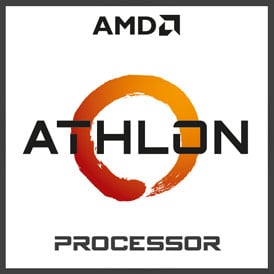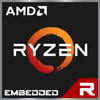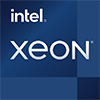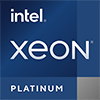
AMD Athlon Silver 3050U Benchmark, Test and specs
Last updated:
The AMD Athlon Silver 3050U was released in Q1/2020 and has 2 cores. The processor can process 2 threads simultaneously and uses a mainboard with the socket FP5. In the Geekbench 5 benchmark, the AMD Athlon Silver 3050U achieved a result of 749 points (single-core) or 1,436 points (multi-core).

| Name: | AMD Athlon Silver 3050U |
|---|---|
| Family: | AMD Athlon (29) |
| CPU group: | AMD Athlon Silver 3000 (3) |
| Architecture: | Dali (Zen) |
| Segment: | Mobile |
| Generation: | 4 |
| Predecessor: | -- |
| Successor: | -- |
CPU Cores and Base Frequency
The AMD Athlon Silver 3050U has 2 cores. The clock frequency of the AMD Athlon Silver 3050U is 2.30 GHz (3.20 GHz). An initial performance assessment can be made using the number of CPU cores.
| CPU Cores / Threads: | 2 / 2 |
|---|---|
| Core architecture: | normal |
| Cores: | 2x |
| Hyperthreading / SMT: | No |
|---|---|
| Overclocking: | No |
| Frequency: | 2.30 GHz |
| Turbo Frequency (1 Core): | 3.20 GHz |
| Turbo Frequency (2 Cores): | 2.30 GHz |
Internal Graphics
The AMD Athlon Silver 3050U has an integrated graphics that the system can use to efficiently play back videos. The AMD Athlon Silver 3050U has the AMD Radeon RX Vega 3 (Raven Ridge) installed, which has 3 streaming multiprocessors (192 shaders).
| GPU name: | AMD Radeon RX Vega 3 (Raven Ridge) |
|---|---|
| GPU frequency: | 1.10 GHz |
| GPU (Turbo): | No turbo |
| Compute units: | 3 |
| Shader: | 192 |
| Hardware Raytracing: | No |
| Release date: | Q1/2018 |
| Max. displays: | 3 |
|---|---|
| Generation: | 8 |
| Direct X: | 12 |
| Technology: | 14 nm |
| Max. GPU Memory: | 2 GB |
| Frame Generation: | No |
Hardware codec support
Processors with integrated graphics can process video codecs faster. Support for modern codecs can significantly increase system efficiency during video playback.
| h265 / HEVC (8 bit): | Decode / Encode |
|---|---|
| h265 / HEVC (10 bit): | Decode / Encode |
| h264: | Decode / Encode |
| VP8: | Decode / Encode |
| VP9: | Decode / Encode |
| AV1: | No |
|---|---|
| AVC: | Decode / Encode |
| VC-1: | Decode |
| JPEG: | Decode / Encode |
Memory & PCIeThe AMD Athlon Silver 3050U supports a maximum of 32 GB memory. Depending on the mainboard, the processor can use a maximum of 2 (Dual Channel) memory channels. This results in a maximum bandwidth of the main memory of 38.4 GB/s. |
|
| Memory type: | Memory bandwidth: |
|---|---|
| DDR4-2400 | 38.4 GB/s |
| Max. Memory: | 32 GB |
| Memory channels: | 2 (Dual Channel) |
| ECC: | Yes |
| PCIe: | 3.0 x 8 |
| PCIe Bandwidth: | 7.9 GB/s |
Thermal ManagementThe AMD Athlon Silver 3050U has a TDP of 15 W. Based on the TDP, the system manufacturer can and must adapt the cooling solution to the processor. |
|
|---|---|
| TDP (PL1 / PBP): | 15 W |
| TDP (PL2): | -- |
| TDP up: | 25 W |
| TDP down: | 12 W |
| Tjunction max.: | 95 °C |
Technical details
Modern production reduces the waste heat of a processor and increases its efficiency. The AMD Athlon Silver 3050U is made in 14 nm and has 4.00 MB cache.
| Technology: | 14 nm |
|---|---|
| Chip design: | |
| Socket: | FP5 |
| L2-Cache: | -- |
| L3-Cache: | 4.00 MB |
| AES-NI: | Yes |
| Operating systems: |
| Virtualization: | AMD-V, SVM |
|---|---|
| Instruction set (ISA): | x86-64 (64 bit) |
| ISA extensions: | SSE4a, SSE4.1, SSE4.2, AVX2, FMA3 |
| Release date: | Q1/2020 |
| Release price: | -- |
| Part Number: | -- |
| Documents: | Technical data sheet |
Rate this processor
Benchmark results

The benchmark results for the AMD Athlon Silver 3050U have been carefully checked by us. We only publish benchmark results that have been created by us or that have been submitted by a visitor and then checked by a team member. All results are based on and fullfill our benchmark guidelines.
Geekbench 5, 64bit (Single-Core)
Geekbench 5 is a cross plattform benchmark that heavily uses the systems memory. A fast memory will push the result a lot. The single-core test only uses one CPU core, the amount of cores or hyperthreading ability doesn't count.

|
Intel Core i7-4722HQ
4C 8T @ 3.40 GHz |
||

|
Intel Core i5-3380M
2C 4T @ 3.60 GHz |
||

|
Intel Core i7-4700EQ
4C 8T @ 3.40 GHz |
||
|
|
AMD Athlon Silver 3050U
2C 2T @ 3.20 GHz |
||

|
Intel Core i5-3450
4C 4T @ 3.50 GHz |
||

|
Intel Core i5-6350HQ
4C 4T @ 3.20 GHz |
||

|
Intel Core i5-6300HQ
4C 4T @ 3.20 GHz |
||
Geekbench 5, 64bit (Multi-Core)
Geekbench 5 is a cross plattform benchmark that heavily uses the systems memory. A fast memory will push the result a lot. The multi-core test involves all CPU cores and taks a big advantage of hyperthreading.

|
Intel Core i7-3555LE
2C 4T @ 2.50 GHz |
||

|
Qualcomm Snapdragon 660 non LTE
8C 8T @ 2.20 GHz |
||

|
Intel Core i5-5200U
2C 4T @ 2.50 GHz |
||
|
|
AMD Athlon Silver 3050U
2C 2T @ 2.30 GHz |
||

|
Intel Core i3-7100U
2C 4T @ 2.40 GHz |
||

|
AMD A8-7650K
4C 4T @ 3.80 GHz |
||

|
Intel Core i5-4300U
2C 4T @ 2.90 GHz |
||
Geekbench 6 (Single-Core)
Geekbench 6 is a benchmark for modern computers, notebooks and smartphones. What is new is an optimized utilization of newer CPU architectures, e.g. based on the big.LITTLE concept and combining CPU cores of different sizes. The single-core benchmark only evaluates the performance of the fastest CPU core, the number of CPU cores in a processor is irrelevant here.

|
MediaTek Dimensity 900
8C 8T @ 2.40 GHz |
||
|
|
HiSilicon Kirin 980
8C 8T @ 2.60 GHz |
||

|
Intel Core m5-6Y54
2C 4T @ 2.70 GHz |
||
|
|
AMD Athlon Silver 3050U
2C 2T @ 3.20 GHz |
||

|
Intel Xeon D-1520
4C 8T @ 2.60 GHz |
||

|
Intel Xeon E5-2650L v4
14C 28T @ 2.50 GHz |
||

|
AMD Ryzen Embedded R1600
2C 4T @ 3.10 GHz |
||
Geekbench 6 (Multi-Core)
Geekbench 6 is a benchmark for modern computers, notebooks and smartphones. What is new is an optimized utilization of newer CPU architectures, e.g. based on the big.LITTLE concept and combining CPU cores of different sizes. The multi-core benchmark evaluates the performance of all of the processor's CPU cores. Virtual thread improvements such as AMD SMT or Intel's Hyper-Threading have a positive impact on the benchmark result.

|
Intel Core m3-7Y30
2C 4T @ 2.00 GHz |
||

|
Intel Core i3-4000M
2C 4T @ 2.40 GHz |
||

|
Intel Core i7-870
4C 8T @ 2.93 GHz |
||
|
|
AMD Athlon Silver 3050U
2C 2T @ 2.30 GHz |
||

|
Intel Pentium Gold G6400T
2C 4T @ 3.40 GHz |
||

|
UNISOC T618
8C 8T @ 2.00 GHz |
||

|
Intel Core i3-5020U
2C 4T @ 2.20 GHz |
||
Cinebench R20 (Single-Core)
Cinebench R20 is the successor of Cinebench R15 and is also based on the Cinema 4 Suite. Cinema 4 is a worldwide used software to create 3D forms. The single-core test only uses one CPU core, the amount of cores or hyperthreading ability doesn't count.

|
AMD FX-6200
6C 6T @ 4.10 GHz |
||

|
AMD Ryzen 3 PRO 4450U
4C 8T @ 3.70 GHz |
||

|
AMD A6-9225
2C 2T @ 3.00 GHz |
||
|
|
AMD Athlon Silver 3050U
2C 2T @ 3.20 GHz |
||

|
AMD FX-8300
8C 8T @ 4.20 GHz |
||

|
Intel Xeon X3440
4C 8T @ 2.93 GHz |
||

|
Intel Core 2 Quad Q9300
4C 4T @ 2.50 GHz |
||
iGPU - FP32 Performance (Single-precision GFLOPS)
The theoretical computing performance of the internal graphics unit of the processor with simple accuracy (32 bit) in GFLOPS. GFLOPS indicates how many billion floating point operations the iGPU can perform per second.

|
Intel Core i5-7500
Intel HD Graphics 630 @ 1.10 GHz |
||

|
Intel Core i5-7600T
Intel HD Graphics 630 @ 1.10 GHz |
||

|
Intel Core i7-6700T
Intel HD Graphics 530 @ 1.10 GHz |
||
|
|
AMD Athlon Silver 3050U
AMD Radeon RX Vega 3 (Raven Ridge) @ 1.10 GHz |
||

|
AMD Athlon Silver Pro 3125GE
AMD Radeon RX Vega 3 (Raven Ridge) @ 1.10 GHz |
||

|
AMD Athlon Gold Pro 3150G
AMD Radeon RX Vega 3 (Raven Ridge) @ 1.10 GHz |
||

|
AMD Athlon Gold 3150GE
AMD Radeon RX Vega 3 (Raven Ridge) @ 1.10 GHz |
||
Estimated results for PassMark CPU Mark
Some of the CPUs listed below have been benchmarked by CPU-monkey. However the majority of CPUs have not been tested and the results have been estimated by a CPU-monkey’s secret proprietary formula. As such they do not accurately reflect the actual Passmark CPU mark values and are not endorsed by PassMark Software Pty Ltd.

|
Intel Core i5-6200U
2C 4T @ 2.70 GHz |
||

|
Intel Core i7-5600U
2C 4T @ 3.10 GHz |
||

|
Intel Core i5-4308U
2C 4T @ 2.80 GHz |
||
|
|
AMD Athlon Silver 3050U
2C 2T @ 2.30 GHz |
||

|
Intel Core i3-7130U
2C 4T @ 2.70 GHz |
||

|
AMD Phenom II X4 900e
4C 4T @ 2.40 GHz |
||

|
Intel Core i7-940
4C 8T @ 2.93 GHz |
||
CPU-Z Benchmark 17 (Multi-Core)
The CPU-Z benchmark measures a processor's performance by measuring the time it takes the system to complete all benchmark calculations. The faster the benchmark is completed, the higher the score.

|
Intel Pentium G3420
2C 2T @ 3.20 GHz |
||

|
Intel Core i3-7100U
2C 4T @ 2.40 GHz |
||

|
Intel Pentium G3250
2C 2T @ 3.20 GHz |
||
|
|
AMD Athlon Silver 3050U
2C 2T @ 2.30 GHz |
||

|
Intel Pentium Gold 5405U
2C 4T @ 2.30 GHz |
||

|
AMD A8-7650K
4C 4T @ 3.30 GHz |
||

|
Intel Celeron N4100
4C 4T @ 1.10 GHz |
||
Cinebench R15 (Single-Core)
Cinebench R15 is the successor of Cinebench 11.5 and is also based on the Cinema 4 Suite. Cinema 4 is a worldwide used software to create 3D forms. The single-core test only uses one CPU core, the amount of cores or hyperthreading ability doesn't count.

|
Intel Core i7-5500U
2C 4T @ 3.00 GHz |
||

|
Intel Core i7-5550U
2C 4T @ 3.00 GHz |
||

|
Intel Pentium G3240
2C 2T @ 3.10 GHz |
||
|
|
AMD Athlon Silver 3050U
2C 2T @ 3.20 GHz |
||

|
Intel Core i7-4712HQ
4C 8T @ 3.30 GHz |
||

|
Intel Xeon Platinum 8153
16C 32T @ 2.80 GHz |
||

|
Intel Xeon Gold 5115
10C 20T @ 2.80 GHz |
||
Benchmarks

Geekbench 5 (SC)
2,488 entries
2,488 entries

Geekbench 5 (MC)
2,461 entries
2,461 entries

Geekbench 6 (SC)
1,754 entries
1,754 entries

Geekbench 6 (MC)
1,702 entries
1,702 entries

Cinebench R20 (SC)
656 entries
656 entries

FP32 SP (iGPU)
2,026 entries
2,026 entries

3DMark Timespy (iGPU)
512 entries
512 entries

PassMark CPU-Mark
2,392 entries
2,392 entries

CPU-Z Benchmark 17 (MC)
733 entries
733 entries

Cinebench R15 (SC)
1,106 entries
1,106 entries
Description of the processor
The AMD Athlon Silver 3050U is a 2-core processor for very small devices or inexpensive notebooks or Chromebooks. The processors base frequency is 2.3 GHz. The processor can increase the clock frequency up to 3.2 GHz via Turbo mode when only one core is used. If both cores are utilized, the processor is only allowed to run them with its base clock of 2.3 GHz. The two CPU cores have to make do with a rather small L3 cache of 4 MB.The AMD Athlon Silver 3050U is based on the AMD Dali design, which uses Zen+ cores. The processor is still manufactured in the older 14 nm process to keep the processors price low. AMD normally manufactures the 2020 processors (AMD Zen 2) in 7 nm. The 15-watt processor can also be operated with a TDP of 25 watts, but this hardly increases the speed. This is because the 2-core processor also manages with 15 watts. With a cTDP of 12 watts, some more energy can be saved, but the performance hardly changes here either.
The processor has AMDs Radeon Vega 3 Graphics, which has 3 execution units and clocks with up to 1.1 GHz. This is the smallest configuration of the AMD Vega iGPUs. Even undemanding games cannot usually be rendered smoothly, so the graphics are not aimed at gamers, but solely ensure that one or more screens can be controlled without having to resort to a dedicated graphics solution.
The small AMD Athlon Silver 3050U can address up to 32 GB of working memory (DDR4-2400) in dual-channel mode. The memory bandwidth can be greatly increased by using two memory channels, which can have a big impact depending on the application. The processor provides 8 PCIe 3.0 lines for connecting devices.
Popular comparisons
back to index







